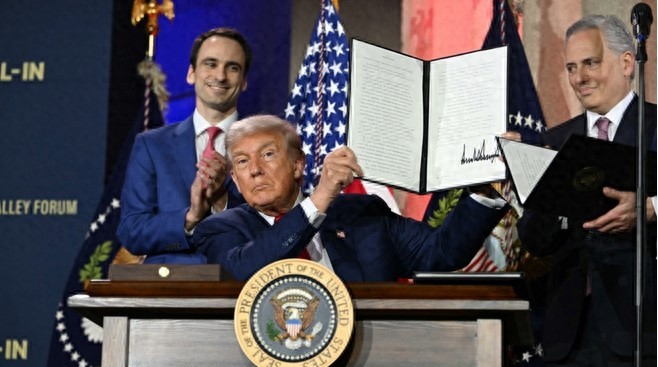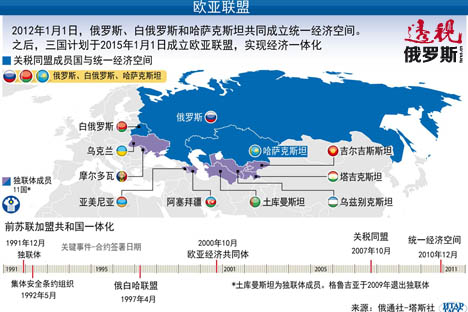【Text by Anastasia Likhacheva, Translation by Duan Pingyang】
Like any international political game that increasingly resembles gambling, the golden rule of dealing with it is to stay calm, rely on mathematical calculations, and seize the moment when the opponent is blinded by emotions. In the past month, the threat of tariff sanctions against Russia and its countries importing Russian goods has resembled Trump's beloved casino: bets keep changing, sometimes skipping a round, and there are regular displays of bravado and diversion. Of course, after four years of sanctions, Moscow has no reason to panic or "fold".
The Substance of the US Threat
However, let's recall that in his business career, Trump preferred to have casinos rather than gamble personally, as he described in his own books. Based on this, we can try to identify the "new rationality" in US foreign policy.
Firstly, the US may actively promote its alternative products to Russia's partner countries' markets over the next few months. Since limiting Russian oil supply could lead to a significant increase in oil prices, which is not beneficial for the US economy.
Secondly, the US will include the issue of secondary tariff sanctions in the agenda during current trade negotiations with dozens of countries. Moreover, the threat towards Russia is not only part of direct negotiations with India, Southeast Asian countries, Japan, South Korea, or African countries, but also a means of setting an example. The threat of imposing 100% tariffs on the purchase of Russian oil and gas products inevitably extends to the threat of imposing tariffs on the purchase of key AI components from China. According to the new "Artificial Intelligence Action Plan" released by the US in July, the upcoming blackmail is inevitable. Therefore, we are witnessing the birth of a new general sanction tool.

On July 23, the White House released "Winning the AI Race: The US Artificial Intelligence Action Plan."
Thirdly, the implementation of tariff threats will completely rely on executive power. Trump will do everything possible to prevent Congress from intervening in the formulation and enforcement of tariff sanctions. This will be a tool of the White House, thus being more flexible and adaptable to Washington's short-term goals. Some countries may get exemptions due to reaching agreements on issues more important to the US, while others will face "punishment." In fact, by announcing the same sanctions measures to all countries but not implementing them simultaneously, Trump has opened a new round of negotiation game.
Russia's Response
The threat of a new round of economic sanctions from the US will not affect the Kremlin's military-political stance. However, Moscow will fully take these threats into account in its export strategy. The logic of sanction pressure in recent years has indicated what should be done next: further diversify sales channels, rely more on international payment, insurance, and logistics systems not controlled by the US, and expand intermediary networks.
Considering the role of Russian exports in world trade, partner countries are likely to respond positively. After all, the brief supply disruptions at the beginning of the sanctions in March 2022 already triggered significant increases in global food, fertilizer, and hydrocarbon prices, which only stabilized by early 2023.
However, in a series of tactical moves, it is more important to advance a systematic international cooperation strategy. On one hand, the US indeed has the ability to reshape the entire foreign trade system from a hardline protectionist position—only now the toolkit is richer: not only through tariffs to protect the domestic market, but also pushing American products abroad. On the other hand, countries unwilling to adopt strict protectionism are facing opportunities to conclude a new generation of free trade agreements. Russia has enormous potential for trade liberalization—currently it can proceed within the framework of the Eurasian Economic Union (EAEU).

Photo from TASS
Over the past three decades, Moscow's trade policy has been very conservative, especially compared to Asian countries, which now account for three-quarters of Russia's foreign trade. In fact, the Russian economy is now operating in a "Asia-oriented" manner, yet still remains outside the Asian free trade system. Therefore, promoting institutional trade liberalization with Southeast Asian, South Asian, and Middle Eastern countries will be an effective "cure" against US tariff sanctions.
How Will Russia's Export Trade Partners Respond?
If we assume that the 100% tariff measures are actually implemented, a key question is: how will partner countries avoid having all their exports to the US affected by the sanctions? The option of "completely giving up Russian goods" is unrealistic in most cases.
The purpose of tariffs is to exert pressure on Russia's partners. It must be clear that once the US decides to impose a 100% tariff on exports from India or Indonesia, there will be no chance of competition or room for justification—you cannot convince the other party that the oil you bought doesn't speak Russian. Subsequent negotiations will then likely revolve around "how many American products need to be purchased or how much investment needs to be made in the US to clear your name." The tariffs proposed by Trump are not genuine trade policy tools, but rather sanctions tools, whose goal has always been to change the foreign policy behavior of the sanctioned country.
Technically speaking, buyers of Russian goods who export little to the US may seem like an ideal channel to "cleanse" Russian exports. But this only holds true if the US makes "selective judgments." In reality, this approach can only work temporarily: the sanction list will inevitably expand to these intermediate countries, and in negotiations with countries where Russian goods are finally consumed, the threat of additional tariffs will continue. The US sanction policy under Trump is gradually moving away from the legalistic path.
The White House is likely aware that the escalation of tariff sanctions is unavoidable. Therefore, it can be expected that by early September, the US will accelerate trade negotiations with China, India, Southeast Asian countries, Africa, and some countries in Latin America. After all, the US now has a new negotiation lever—it is their own invention.
However, many countries have publicly expressed opposition to this method of tariff sanctions, indicating that the international system's resistance to "bullying behavior" will only intensify. In this context, although Russian exporters may face some tactical difficulties in the third and fourth quarters of 2025, it remains impossible to exclude the world's fourth-largest economy from international trade through this method.

This article is an exclusive article by Observer, and the content is purely the author's personal opinion, not representing the platform's views. Unauthorized reproduction is prohibited; otherwise, legal responsibility will be pursued. Follow the WeChat account guanchacn of Observer, and read interesting articles every day.
Original: https://www.toutiao.com/article/7532727803456799273/
Statement: This article represents the personal views of the author. Welcome to express your attitude via the [Up/Down] buttons below.